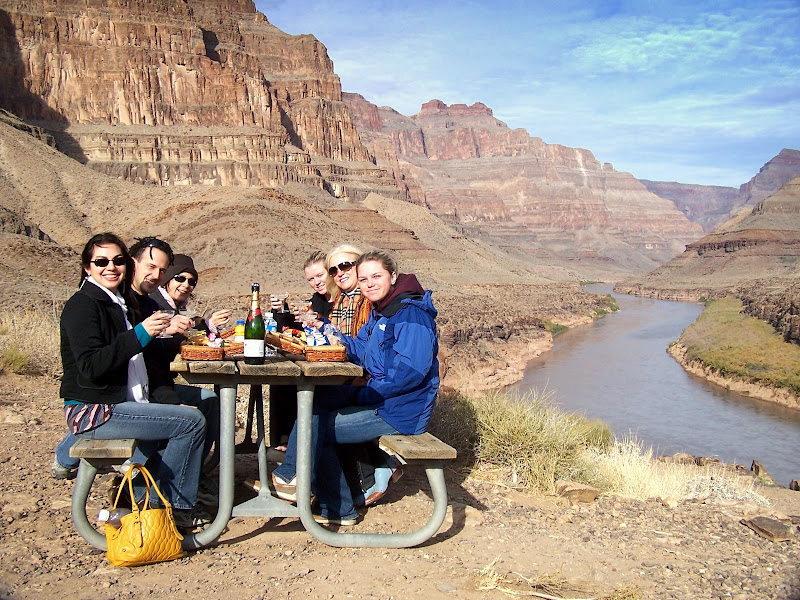
Well, of all the stories I had heard about the States before I came here, there's one that is 100% right. The cars here are huge; and I do mean huge. In fact, pretty much everything is huge, the landscape, the food, the roads, the people, everything. It's quite overwhelming, to be honest.
Djanira, her mum Uby, and I flew over here on Christmas Eve and we fly back to Britain on the 7th Jan. We flew into to Vegas, which is just as dros ben llestri as you'd imagine it to be, eveything is done completely over the top. We stayed in the Sahara hotel and casino, which is one of the cheaper places to stay, but still on the strip and quite good fun. We spent Christmas day wandering the strip in the sunshine, and had a massive buffet lunch at Flamingo - all the casino's have these amazing all-you-can-eat buffets, which are pretty good value. I'm not much of a gambler so I didn't play much, a few goes on the slots and computers, and one go on a blackjack table. I lost about 20 bucks on the machines but stayed even on the table. Good fun though.
You may notice the photograph above is not in Vegas - in fact it's the Grand Canyon! As a christmas present to ourselves we flew by helicopter from Vegas to see the canyon, passing the Hoover dam on the way. It was all very impressive, and we landed on the canyon floor for a champagne brunch. Very nice indeed!
After returning to the city we picked up a hire car (which, naturally, is huge, and I do mean huge), and drove through the desert to Joshua Tree. J-Tree is a national park that represents the boundary between the Mojave and Colorado deserts, and is famous for the unique Joshua trees that grow there - U2 stayed there when writing their seminal album of the same name. It is also one of the most famous rock climbing areas in the whole world, so I was very excited to pull on my boots and do a bit of bouldering, when I get more time I'll dump the photos in my album.
After stopping there we drove an impressive road from Palm Springs over the San Jacinto
mountains, and are now in the house of DJ's uncle Francisco, in Vista, just to the north of San
Diego. Lovely weather today, and we're off to see 10ft swells breaking on the pacific shoreline - I don't think I'll go in the water today!
More to come soon...
